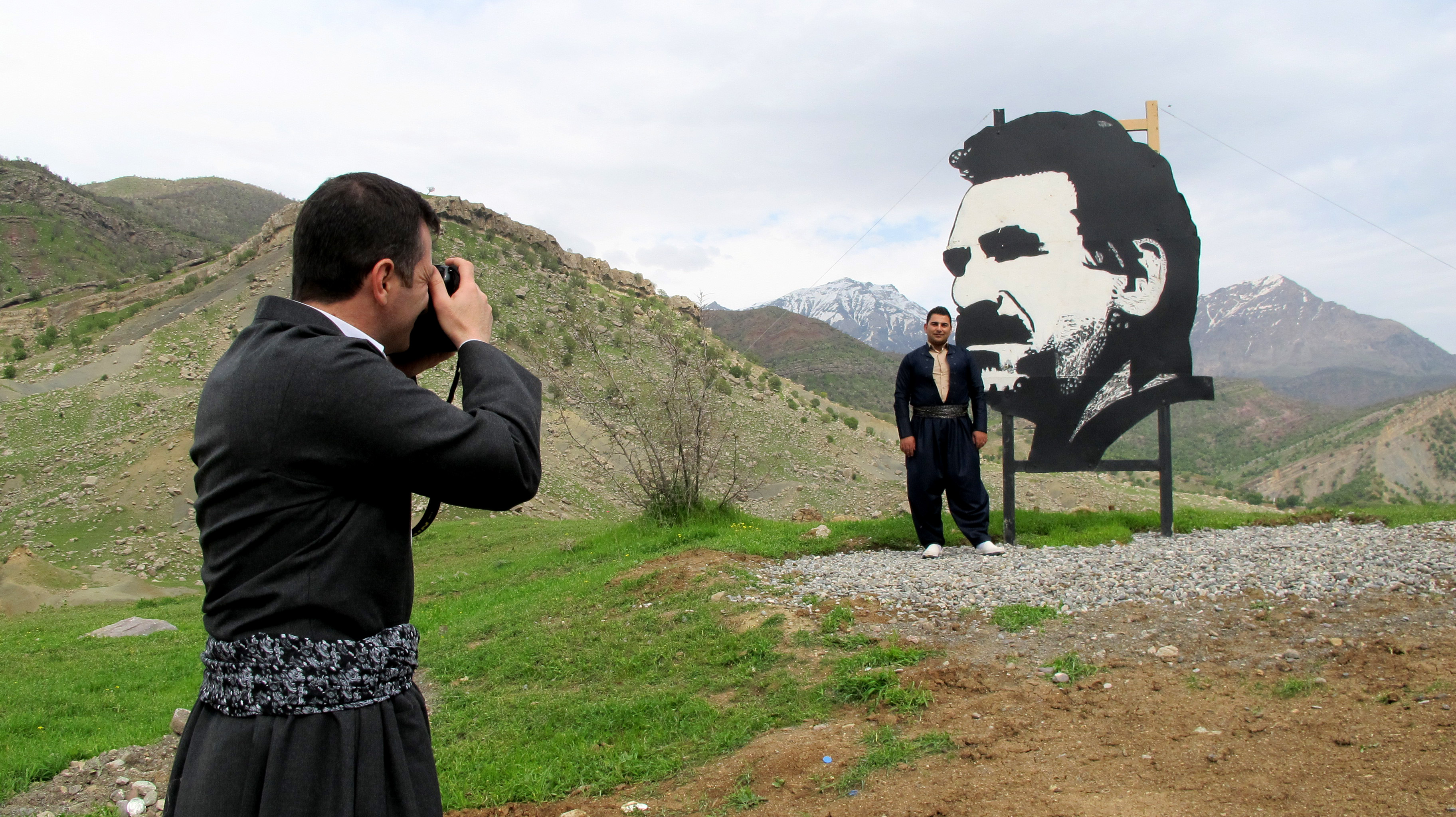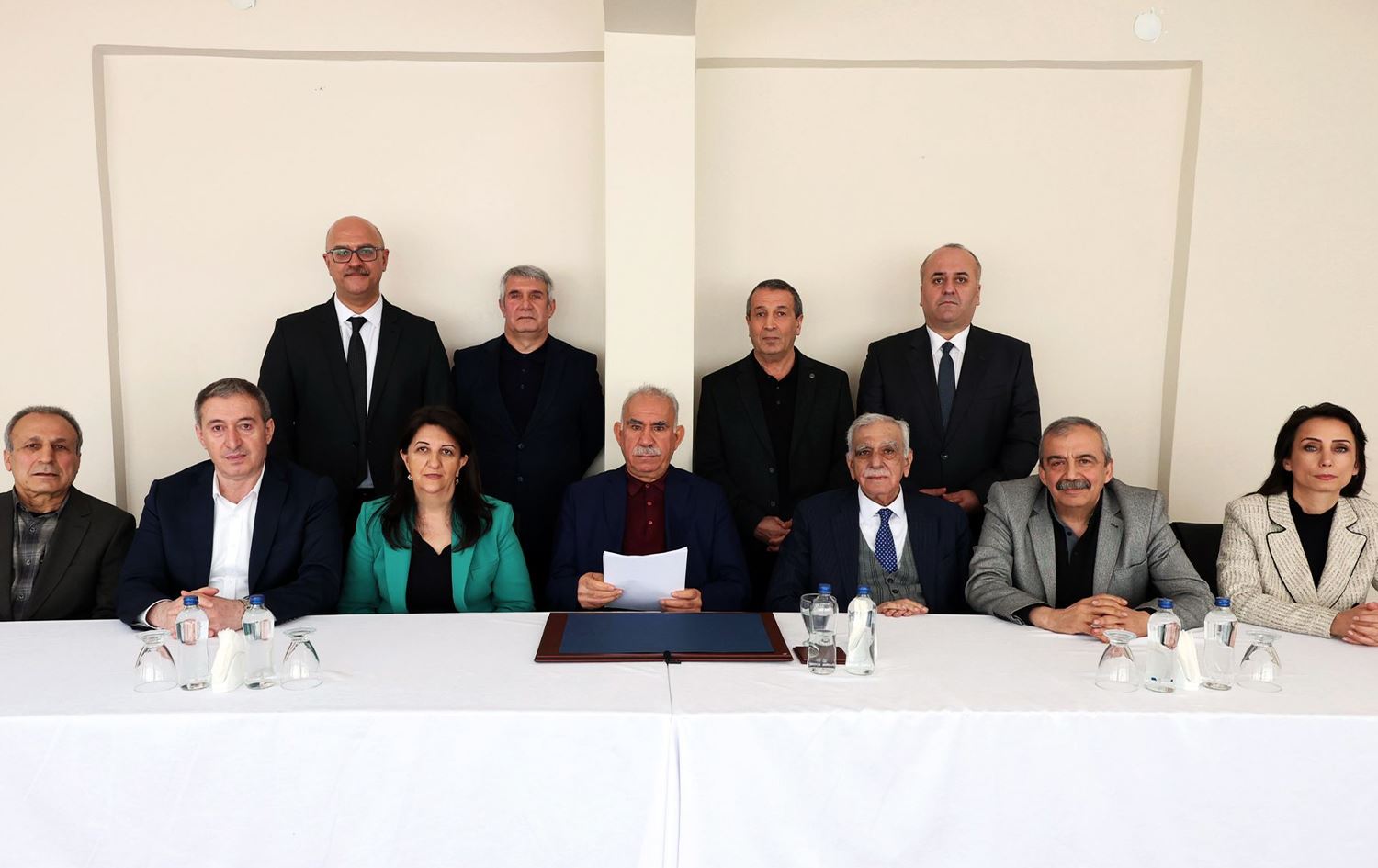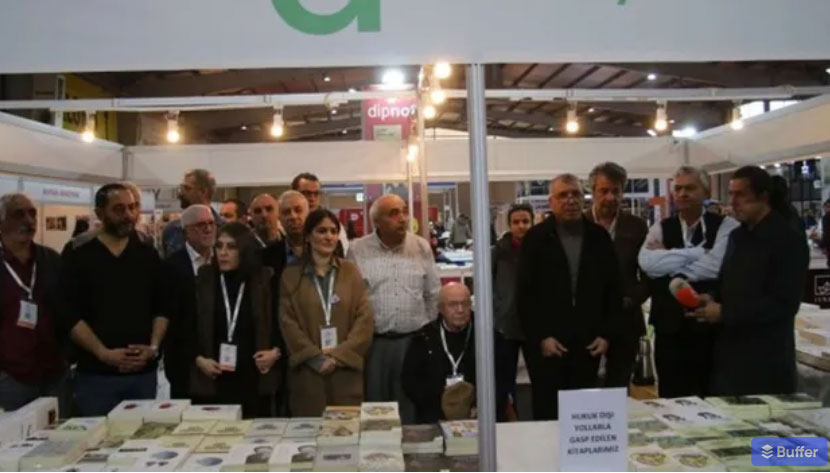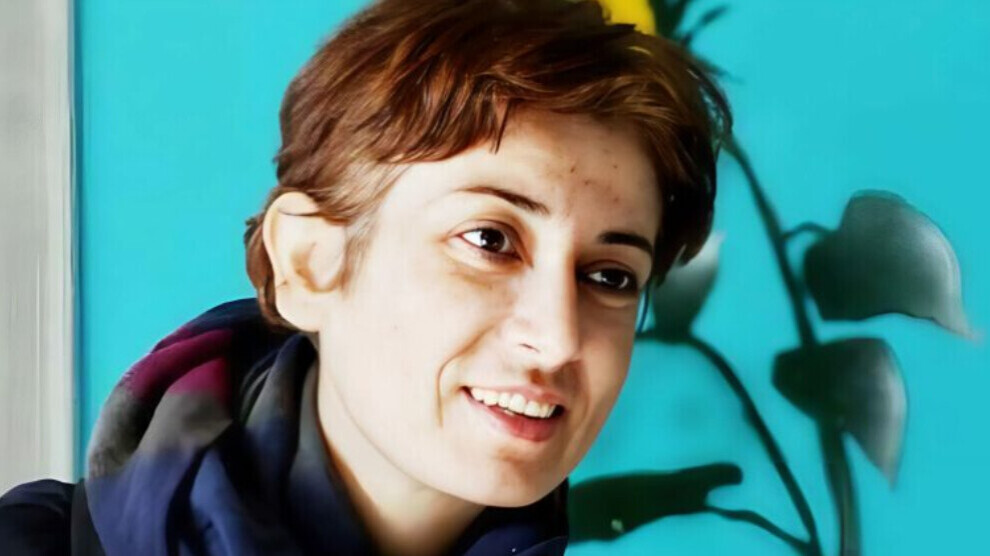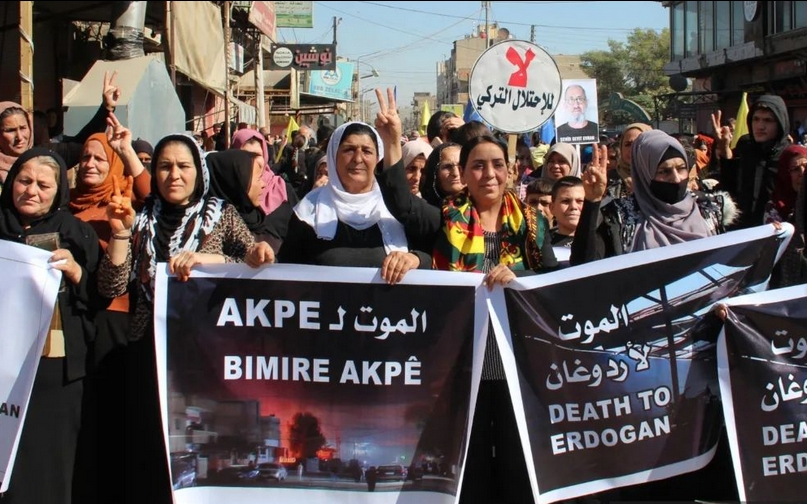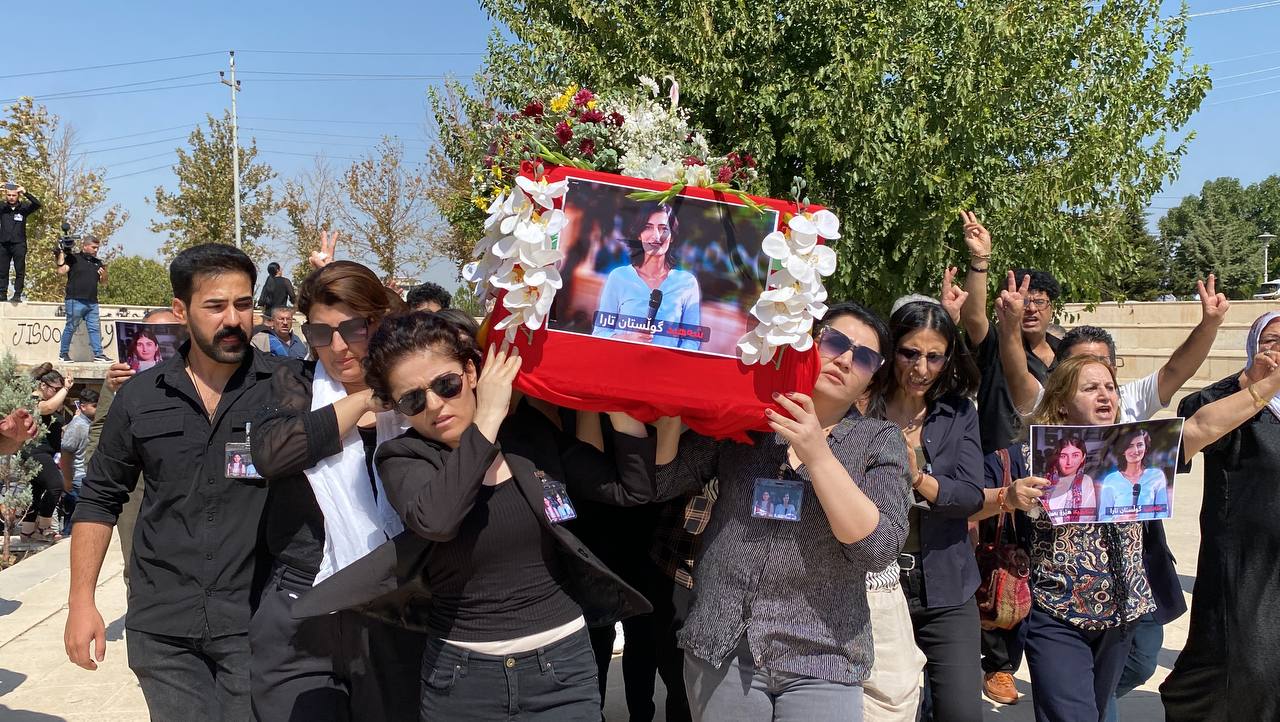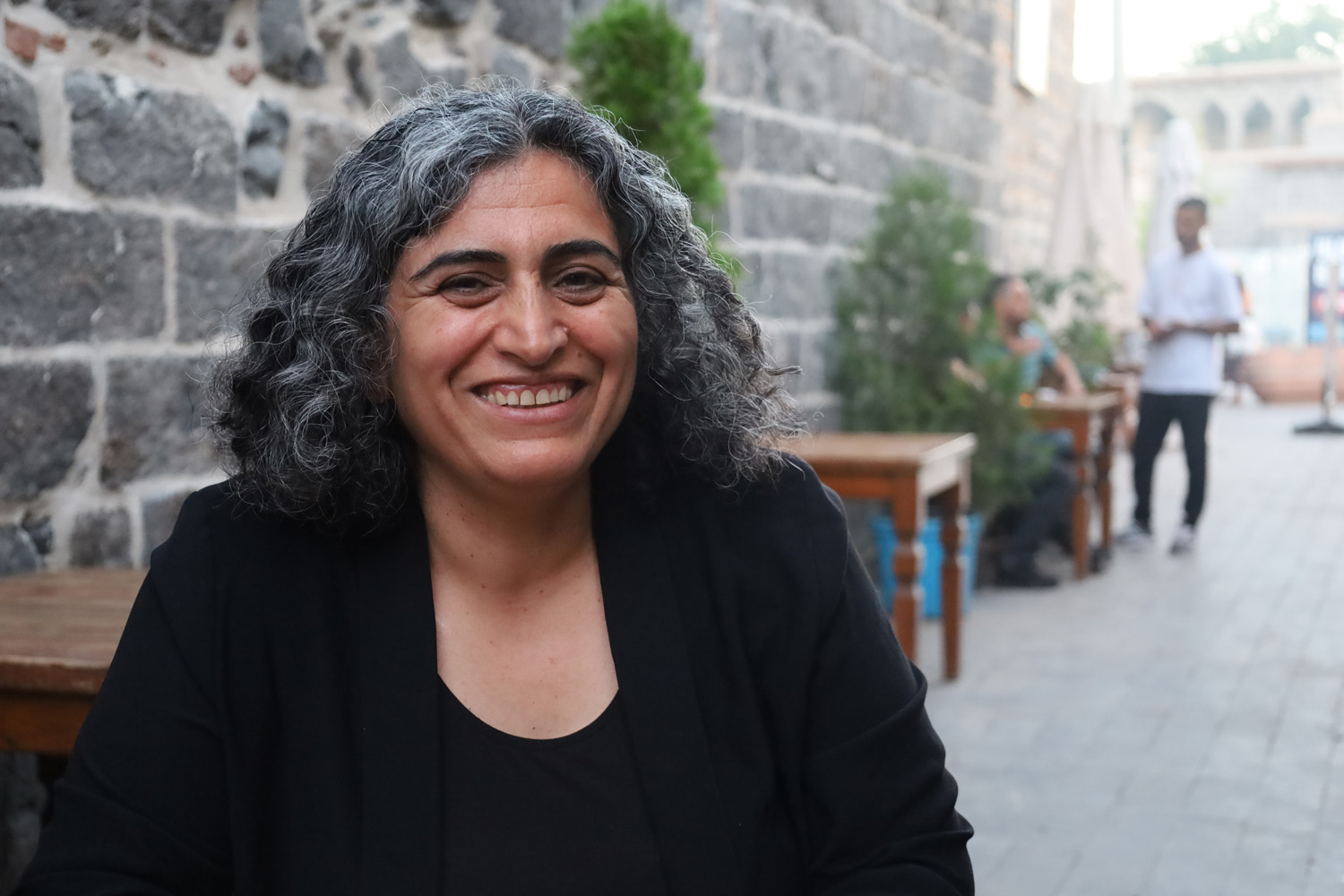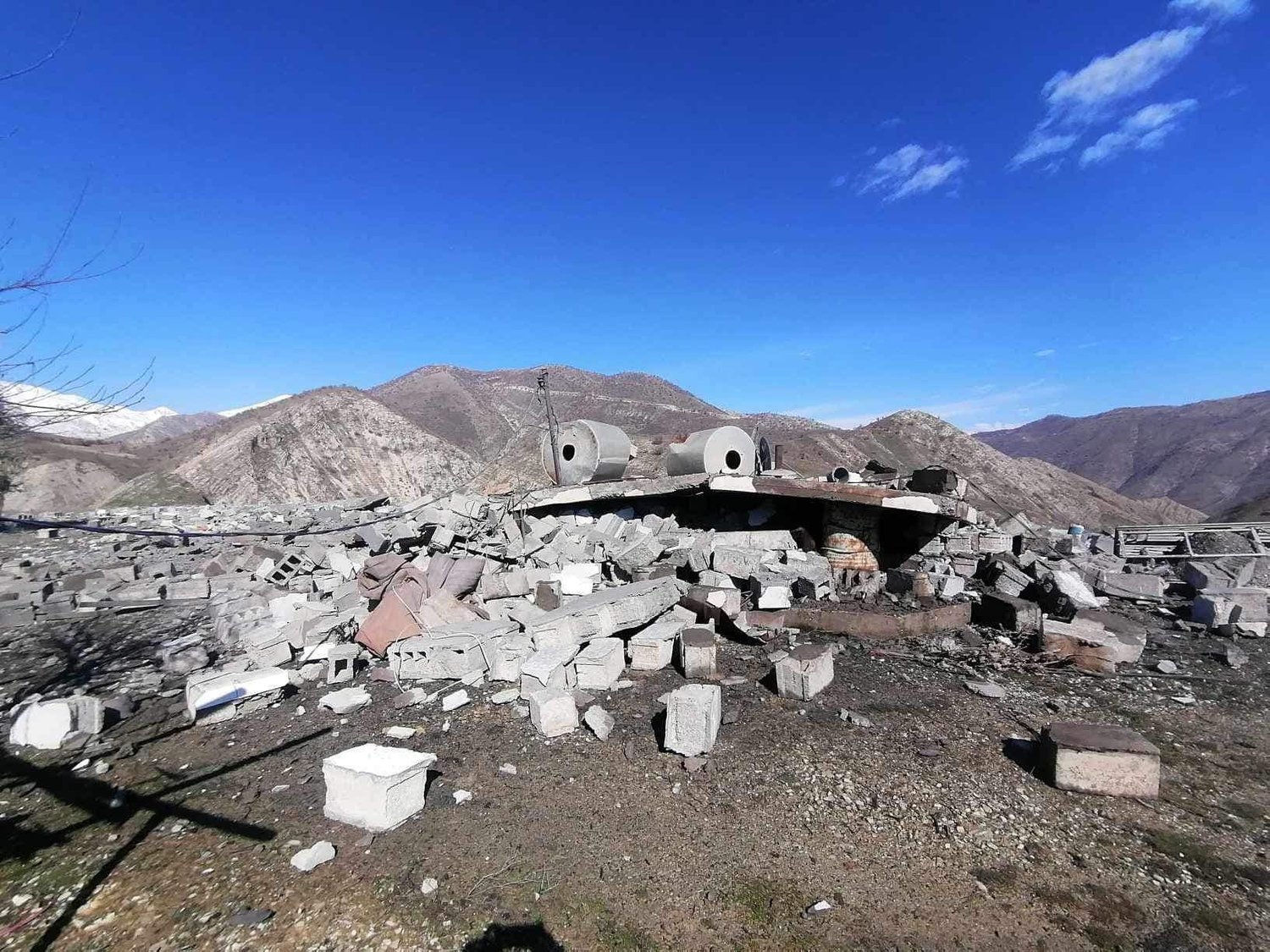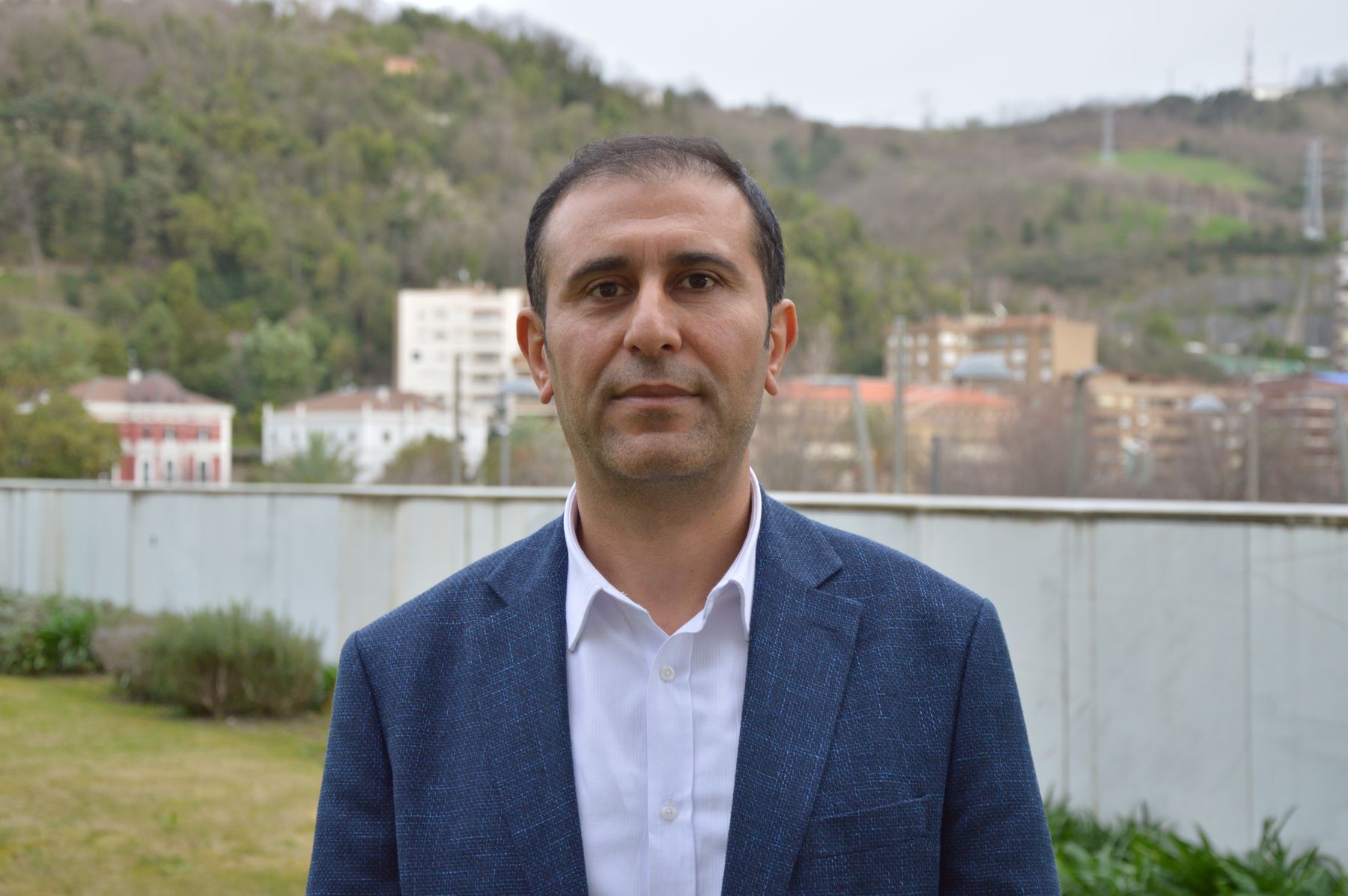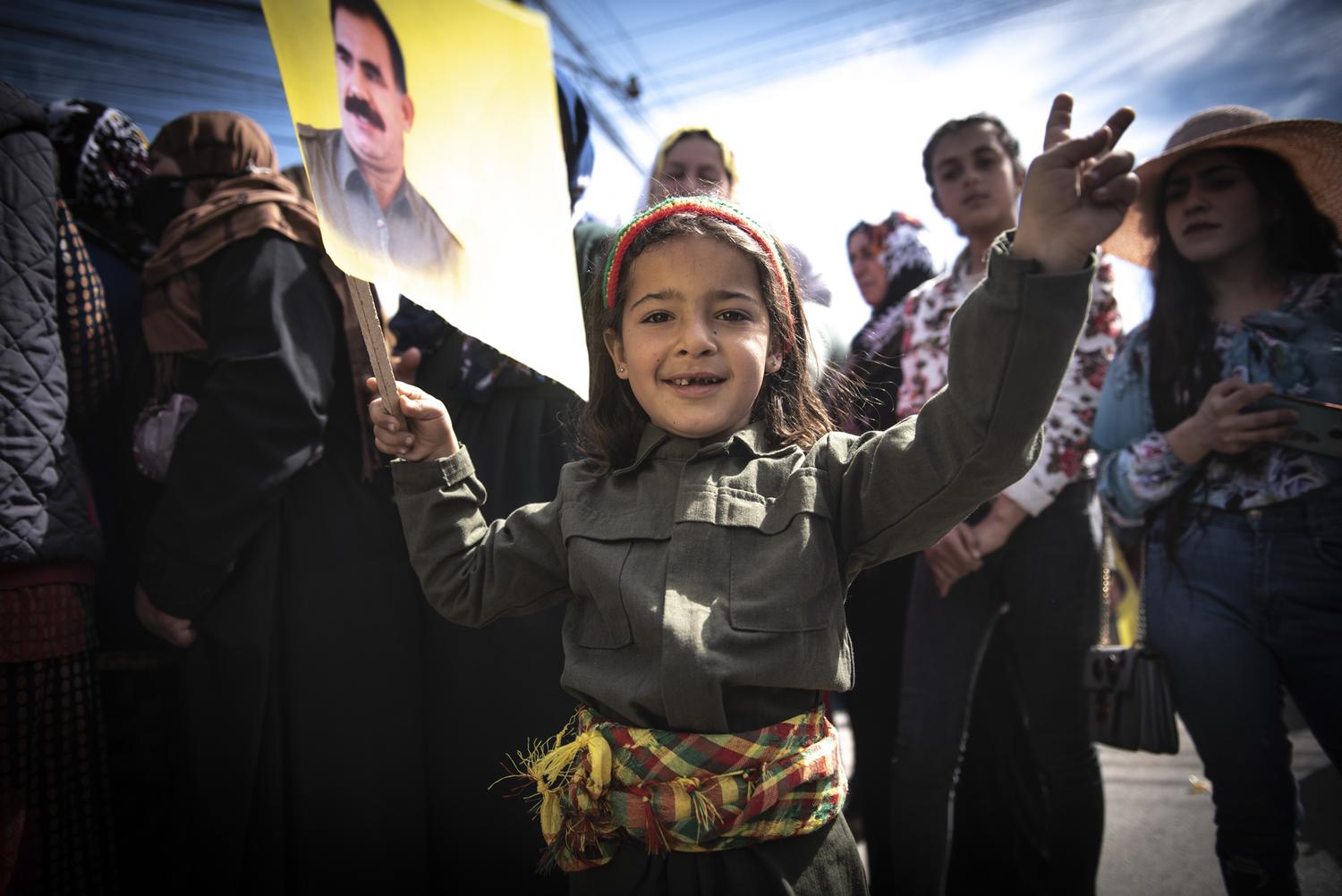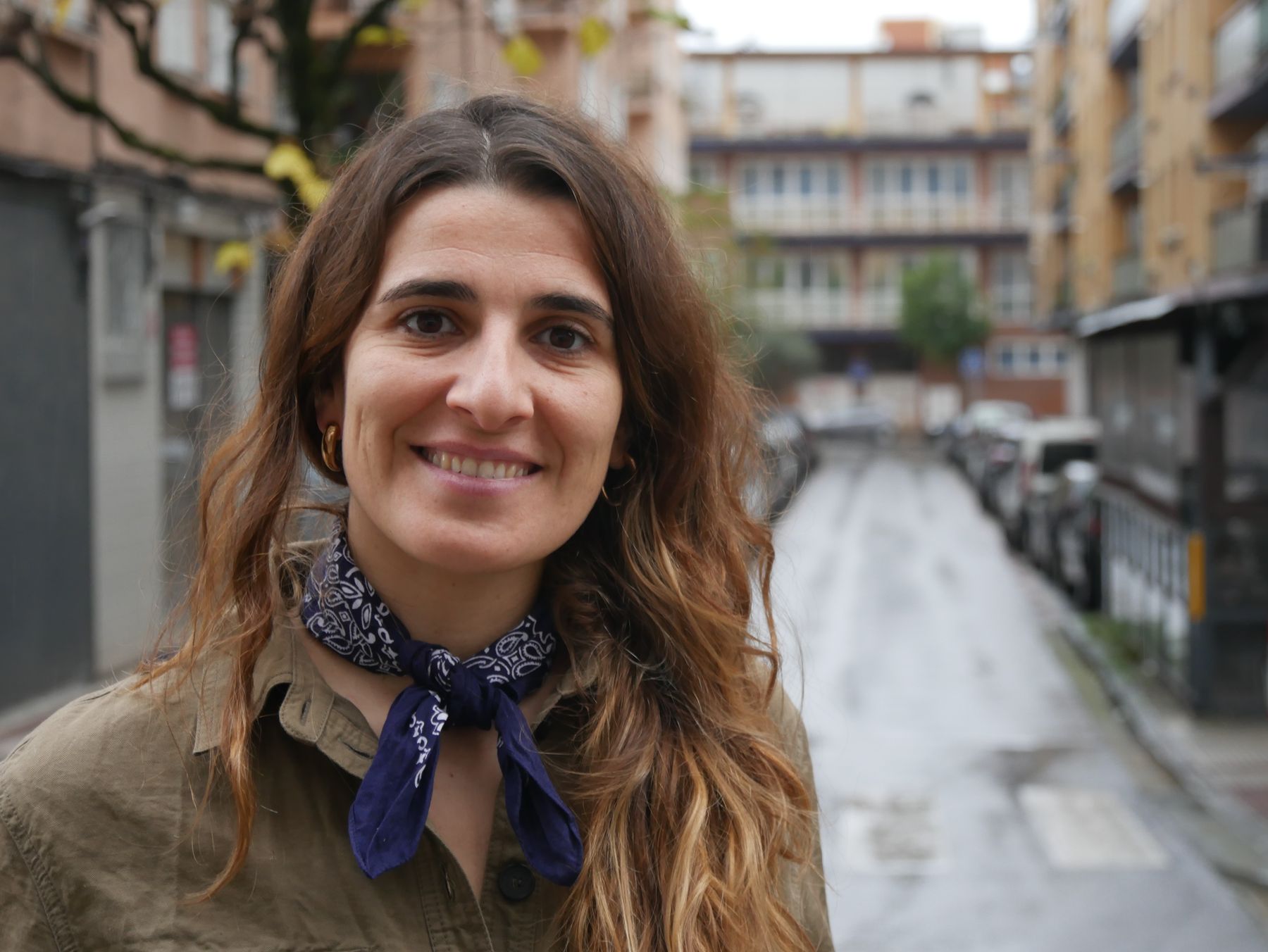Demand justice for the three Kurdish women killed in Paris in 2013
- On 9 January, it is seven years since Turkey killed three revolutionary Kurdish women in Paris in the middle of the Civil War. Calls have been made at international level, also in the Basque Country, to demand justice. On Wednesday a repulsive rally was held in Vitoria-Gasteiz, and on Thursday it will be held in Bilbao.

On 9 January 2013, in Paris, three Kurdish revolutionary women were murdered by the secret services of the Turkish State. The shots were fired at the head of Sakine Cansoburz, Fidan Dogiban and Leyla Şaylemez, at the Kurdistan Information Office, located near the Gare du Nord train station, where Domarroan was working. The three women were Kurdish entrepreneurs, being one of the founders of the PKK Cansubi (Kurdistan Workers’ Party).
The murder occurred during the negotiations between the Turkish Government and the PKK to try to resolve the conflict it had with the guerrillas. PPK leader Zubeyr Aydar described the attack as "an attack perpetrated by obscure intentions on the new political process." Turkey’s current president, Recep Tayyip Erdogan, was then Turkey’s prime minister. “In this regard, Erdogan has not only slaughtered Roboski, Afrin, Kobanog, al-Bab, Jarablus and northern Kurdistan; he has also killed Sakine Cansuz, Fidan Domoján and Leyla Şayez,” said Kurk-Lem (European Democratic Association) last January 9.
On the occasion of the seventh anniversary of the murder of Paris, the PKK has pointed out Erdogan’s responsibility for these deaths. “We rage to condemn the perpetrators and those responsible for [murder],” they said, and reminded Cansuz, Dooker and Şaylemez “with affection, respect and gratitude.” They have joined the international mission to pay tribute to the three women and demand that justice be done around their murders, including Euskal Herria. On Wednesday they held a rally in Vitoria-Gasteiz, and on Thursday they will also do it in Bilbao, at 19:30 pm in the Plaza del Arriaga.
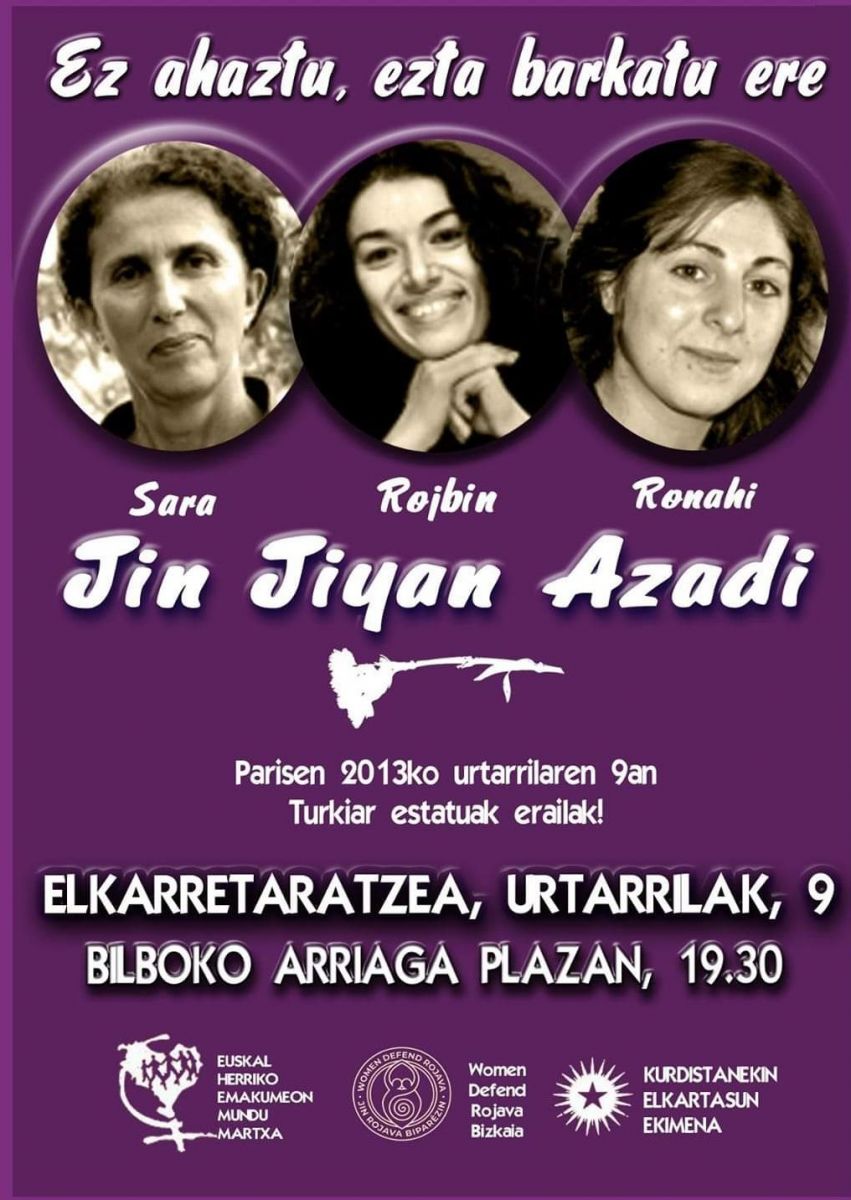
Current context in relation to killings
Months after the murders of Cansoburz, Dogiban and Şaylemez, the alleged murderer, Ömer Güney, was arrested by the Turkish police. Güney was working for the secret services of the Turkish State, and it was reported that Turkish Army Sergeant Hakan Fidan had ordered him to kill the three women. “In the short term, those responsible for these killings are MIT [Turkish Secret Service], the leadership of the AKP [Justice and Development Party, ruled since 2001] and the Turkish Government.” The Kurdish party has denounced that the French Government and the judiciary have not punished those responsible.
The PKK has stressed that this impunity with those responsible for the murder has had consequences to take into account. According to him, the killings in Paris in 2013 are of paramount importance in understanding the current context and the developments that have taken place to that context.
The party referred to the consequences of the failure of French justice to attribute responsibility for these killings to anyone. According to his reading, if the killings in Paris had been investigated, ISIS would not have had so much impact and would not have caused so much damage; if the trial of the case had taken place in time and the perpetrators were punished, the Turkish State would not have been able to occupy Afrin, to attack Rojava on 9 October last year, or to provoke massacres; if the murderers in Paris had been punished today in Turkey.
“Since thoughts and policies based on patriarchy, hostility towards the Kurds, colonialism and massacres have not been tried or punished in Paris, the fascist killers continue their attacks (…) if the Paris killers had been tried and convicted, the international conspiracy against Abdullah Öcalan, leader of the Kurdistan people, would not continue in the East and East.
For its part, the confederation of women's organizations of Rojava, Kongra Star, has recalled that, on the seventh anniversary of the death of three women, in contexts of war women tend to be points of contact: “In exchange for the achievements of revolutionary struggles and resistance, women are always the goal (…) The male dominant mentality lives with fear the organization and power of women, so the ideology of the liberation of women is the answer to all the problems of life, to the prevention of war and to conflicts.”
In this regard, it has appealed to women around the world to continue to strengthen their power, organization and ideology.
Lurrikara geopolitiko bat astintzen ari da Ekialde Hurbileko mapa. Anabasaren erdian, Abdullah Öcalanen bakerako azken deiak mahai gainean jarri du eskualdeko gatazka armatu zaharrena. Ez, aurrekariek ez diote bide ematen itxaropenari, eta historiaren trena inoiz baino... [+]
SDF kurduek gidatutako koalizioak eta Siriako Gobernuak su-etena adostu dute. SDFk Siria ekialdeko eta ipar-ekialdeko eremu zabala kontrolatzen du egun, eta hitzarmenak jaso duenez, gobernuaren esku geratuko da orain.
Abdullah Öcalan buruzagiak PKKri otsailaren 27an eskatu zion armak uzteko. Taldeak egin duen adierazpenean babes osoa agertu dio buruzagiari eta Öcalanek eskatutakoa betetzeko konpromisoa adierazi du.
Urteak iragan dira bere azken argazkia ikusi zenetik. 26 urte daramatza preso Abdullah Öçalanek Turkiako Imrali uhartean, "erakunde terroristako" buruzagitza egotzita. Ostegun eguerdian bere bideo bat ez, baina argazki berri bat zabaltzeko baimena eman du... [+]
Turkish helicopters and fighter aircraft cover the sky in the Kurdish area in northern Iraq. The Turkish Air Force has bombed 381 sites in the major military operation in recent weeks in the Kurdistan Autonomous Region (DRC). The Turkish Ministry of Defence has stated that "the... [+]








